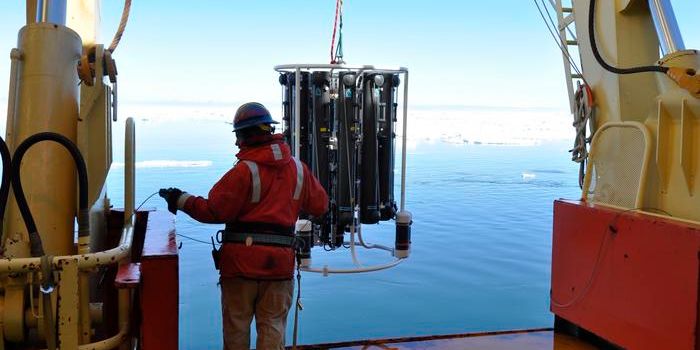Take heart, science readers: one study shows science news makes a difference in at least some classic culture war conversations (think climate change or evolution). Check out Scott Johnson's piece in Ars Technica:
One thing we've learned about publicly controversial topics like climate change and evolution: the controversy won't be solved by simply providing more information about the science. Cultural divides underlie these issues, and battle lines have been drawn for reasons that have little to do with facts. Information is often just fodder for selective hearing and motivated reasoning-biased analysis that twists incoming information to favor our pre-existing opinions.

This is made apparent in many studies and experiments, and it's normally assumed that science news (like you're reading right now) is really no different from other kinds of information in this regard (meaning it's interpreted through cultural biases). Michigan's Sol Hart, Ohio State's Erik Nisbet, and George Mason's Teresa Myers wondered if, when it comes to the news, there might be some normal information processing-as one does with uncontroversial topics-going on at the same time as all this motivated reasoning. To find out, they looked for people who read more science news and determined what they think about climate science.
The researchers surveyed a random sample of almost 1,700 people. Subjects were asked basic demographic questions, how conservative or liberal they identified as, and whether they considered themselves evangelical Christians or environmentalists. They were also asked to rate how much attention they pay to political news, science and technology news, and news about environmental issues.
Seven questions were used as a measure of knowledge about climate change. This included questions about whether the globe has warmed over the last century, whether that has been caused by human activities or the Sun, and whether scientists largely agree. They also asked whether global warming is caused by the hole in the ozone layer (and it bears repeating that it is not), whether China is currently the largest emitter of greenhouse gases, and whether reducing emissions would lead to immediate cooling.
Finally, subjects were asked about how much they felt global warming will harm humans and other organisms, and whether they supported a number of possible policy responses to climate change.
The relationships between attention to political news and things like "climate knowledge," perceived harm, and policy support were about what you'd expect: polarized along ideological lines. The gap between conservatives and liberals also widened among those who pay a lot of attention to political news. In other words, those who probably heard more bitter political exchanges about climate change hewed more closely to the party line.
The relationships with attention to science news were more interesting. Regardless of how liberal or conservative people identified as, if they paid more attention to this class of news, they tended to have slightly higher knowledge scores and perceive that climate change had the potential to cause greater degrees of harm. The increase in perceived harm with greater attention to science and environmental news was mainly due to conservatives-liberals might already be "maxed out."
While tracking science news was not directly associated with more support for climate policies, the researchers noted a strong connection between perceived harm and policy support (which makes sense). So in their analysis, there was an important indirect effect where conservatives who took in more science and environmental news perceived climate change to be more harmful, and therefore were more supportive of climate policies.
That sounds more like normal information processing than motivated reasoning, and implies that news about science and environmental issues isn't completely incapable of ameliorating the public controversy over climate change.
That's assuming the study's conclusions accurately reflect the real world, of course. The climate "knowledge" questions the researchers used are problematic-it has been shown that questions like those are tied to general beliefs more than factual knowledge about climate science. And on average, people got less than 3 of the 7 questions correct, with the difference between people who paid the least attention and the most attention to science news amounting to about 2 more questions correct.
One of the authors (Erik Nisbet) also published a similar study in the journal Public Understanding of Science that yielded an even smaller effect. There, the difference between high and low attention to science news was just 0.2 out of 4 questions for conservatives. For liberals, the knowledge score actually went down (by a statistically insignificant amount) with higher attention to science news, unlike the increase seen in this study.
It also seems fair to wonder how well answers to questions about how much attention people pay to news about science, technology, and environmental issues actually represent the amount of climate science news they consume. (The average response was 2.8 out of 4, by the way, where 4 is "a great deal".)
Given what we've learned from other studies, it would be unwise to run too far with this one (especially if you're a science news writer who would love to think it's true), but it's certainly an interesting idea that researchers will hopefully dig into further.
Follow Will Hector: @WriteCompassion
(Source: ArsTechnica.com)









